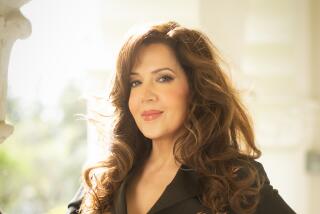This ‘We’re Here’ drag kid was looking for his mother’s acceptance. He’s thriving now
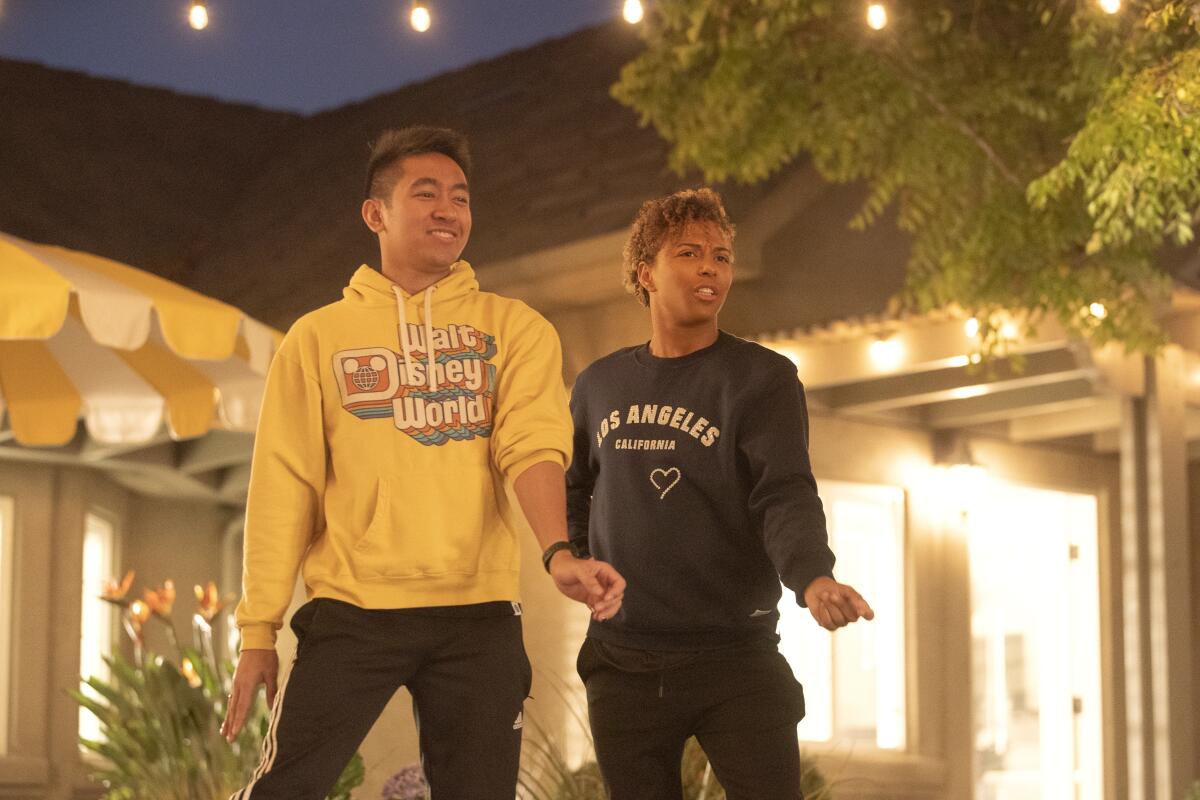
This story contains spoilers for Episode 2 of HBO’s “We’re Here” Season 2.
Andrei Manila was unfamiliar with “We’re Here” when he was approached about being on the show.
But after watching episodes from the HBO drag makeover series’ first season — for which drag performers Shangela, Eureka O’Hara and Bob the Drag Queen travel across small-town America to put on one-night-only drag shows with residents they’ve mentored — Manila knew he had to be on the show.
“I loved the message and the mission that the show had [and] I knew that I had to get my story out there,” Manila, 23, said during a recent phone conversation, “to have representation for people like me.”
“We’re Here” channels the transformative power of drag to help shed light on the stories of LGBTQ people who are facing struggles or uncertainties because of their identity, as well as allies who want to find ways to understand and support their queer loved ones. Manila and his story are among the three spotlighted in the Temecula, Calif.-set second episode of “We’re Here” Season 2, airing Monday.
As Manila touches on in the episode, he was a full-time student living on his own in downtown San Diego when the COVID-19 pandemic forced him to move back home with his family. Although he is an out and proud gay Filipino American, he struggles with being back home where his parents — particularly his mother — do not accept him for who he is.
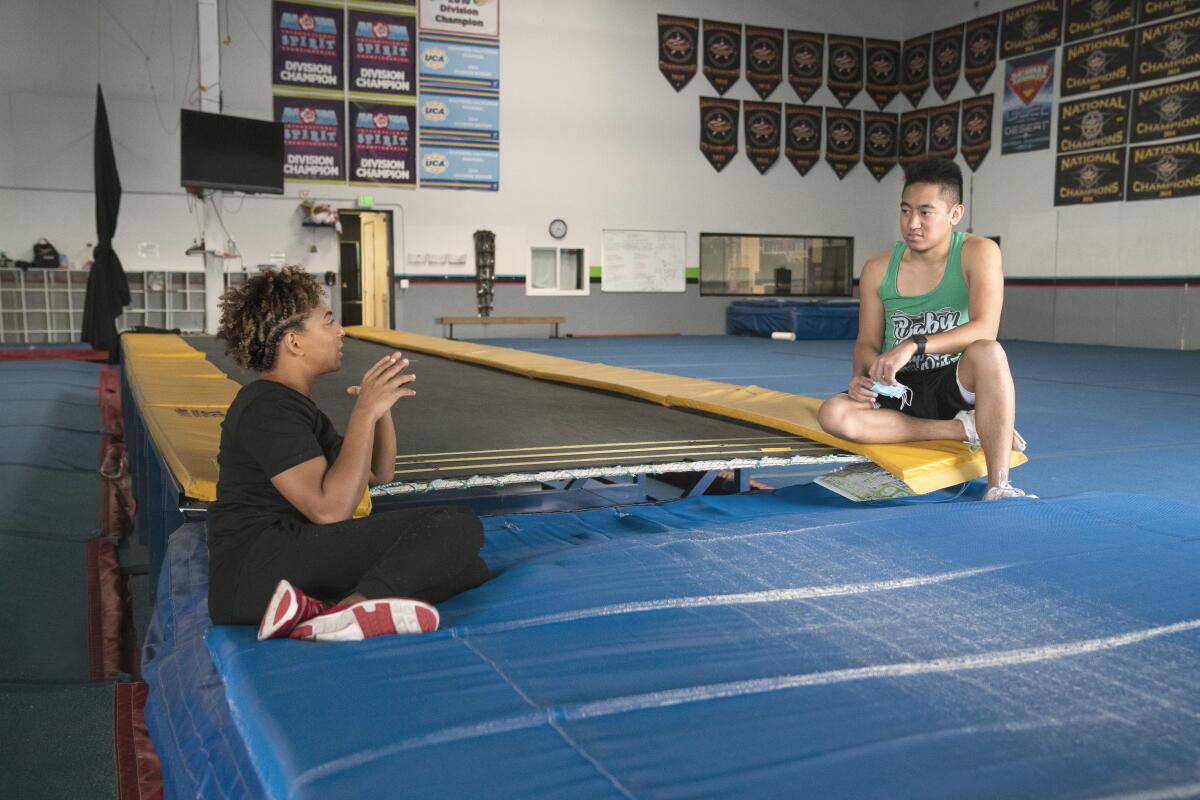
“I know that the more that I talk and I share my story, my process of coming out, it helps other people who are in a similar situation as me realize that, hey, I’m not the only one out there that’s going through this,” Manila said. “Even though I’m completely out, there still isn’t 100% acceptance in my life. And even though I’m living my life the way that I want to, [for] everyone else around me, it might not be the same.”
Manila was also looking forward to the prospect of meeting Shangela, the “RuPaul’s Drag Race” alum whose vocals led a mixtape of music used by Manila’s cheer team in 2019. As mentioned in the episode, cheerleading was an important outlet for Manila, so he is thrilled that Shangela is his drag mother — his mentor who first put him in drag.
“[Andrei] radiates sunshine when he’s in his most natural state,” said Shangela. “He is such a sweetheart. All I could think was, who wouldn’t be kind, nice and loving to this kid? He is just, like, a ball of joy.”
Coming from a small town herself, Shangela understands what it’s like “growing up in a place where you look around and you don’t see a lot of visibility or representation for queer people, especially in your local community.”
“Even though I don’t know [these] towns, I’m familiar with the experience of feeling isolated in small towns,” said Shangela. “It’s just a really great opportunity to be able to amplify voices now.”
Part of the draw of doing an episode in Temecula was practical, according to “We’re Here” executive producer and director Peter LoGreco. Temecula offered the show’s L.A.-based crew an opportunity to work without traveling while things remained uncertain because of the COVID-19 pandemic.
But LoGreco explained they were also interested in showing how “there are places in California, despite the state’s reputation as a whole, that very much exemplified [the cultural and political] divisions [the show explores], places that there are prevailing conservative attitudes that are very loud.
“What really struck us about Temecula was that it isn’t necessarily rural,” said LoGreco. “It’s got a bit of a country component to it, but it’s a little bit more upscale. It’s kind of an aspirational exurb and has a different kind of well-heeled conservatism to it, in a way. It’s a destination for people.”
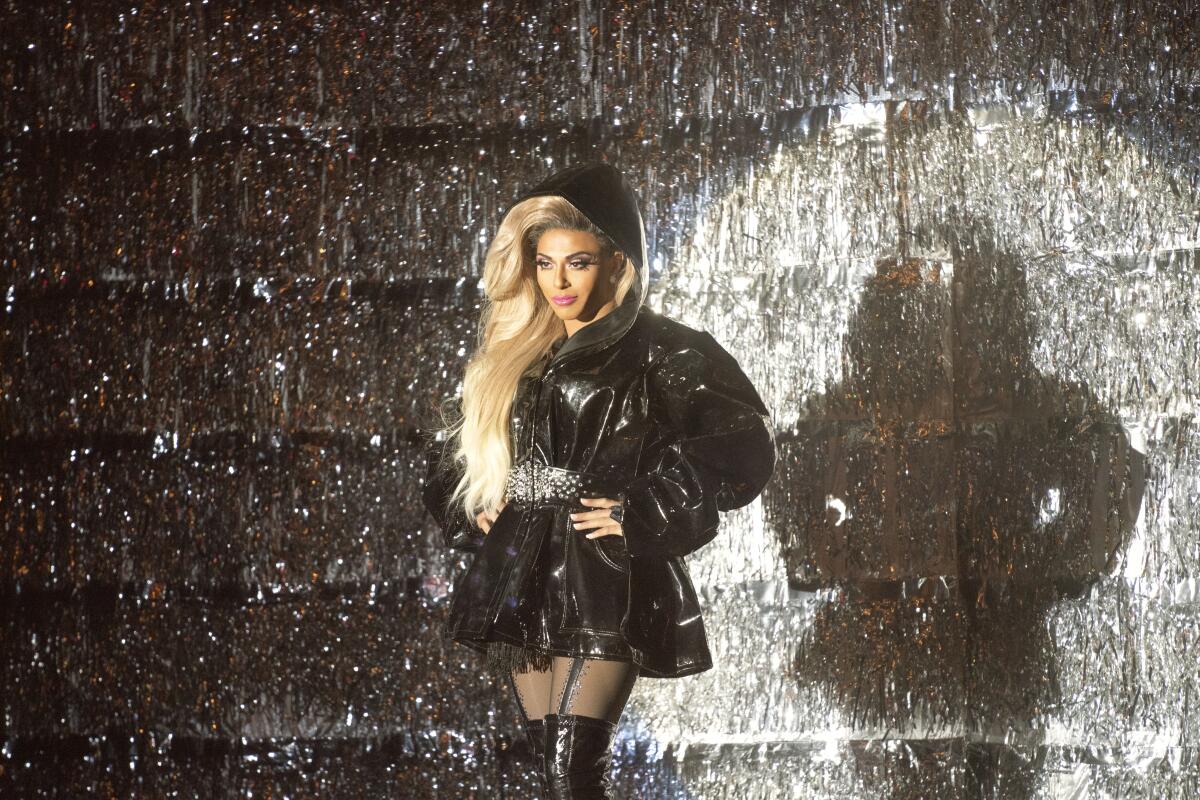
One of the aims for “We’re Here” Season 2, LoGreco said, is highlighting intersectionality through the different ways people identify — different aspects in which they could be perceived as someone who is different — such as individuals who come from immigrant families like Manila or those who are neurodivergent.
“Just because you’re gay, or bi, or trans, that doesn’t mean you’re not all these other things,” said LoGreco. “There are all these different aspects of people’s identities that influence who they are and influence one another.”
In an episode that heavily features the mothers of the other drag kids, the absence of Manila’s parents is palpable, as is his yearning for his mother’s acceptance. Manila shared that he had approached his parents to see if they would be willing to appear in some scenes, but “they weren’t comfortable, specifically my mom.”
At least part of the hesitance can be attributed to the pandemic. The episode was filmed in December 2020 as COVID cases were surging. Despite the safety precautions taken by the production, Manila’s mother was understandably cautious about taking any risks.
“I wish that she could have been on camera for me,” said Manila. “But health comes first. I understand where my parents were coming from, where my mom was coming from, it’s completely understandable. Did I feel a little different in the moment? Yeah, absolutely.”
“This was a big thing that was going on in my life and I just wish that it didn’t shake out the way that it did with COVID and everything,” Manila continued. “But if there’s a silver lining, it’s that I still got to be myself. I didn’t have to have my parents’ approval for that. I got to do this amazing thing — [have an] amazing experience and meet all these amazing people — I don’t regret that at all. I got to shine on my own. And that’s something that no one can ever take away from me.”
And that’s the realization Shangela really wanted Manila to have through his performance.
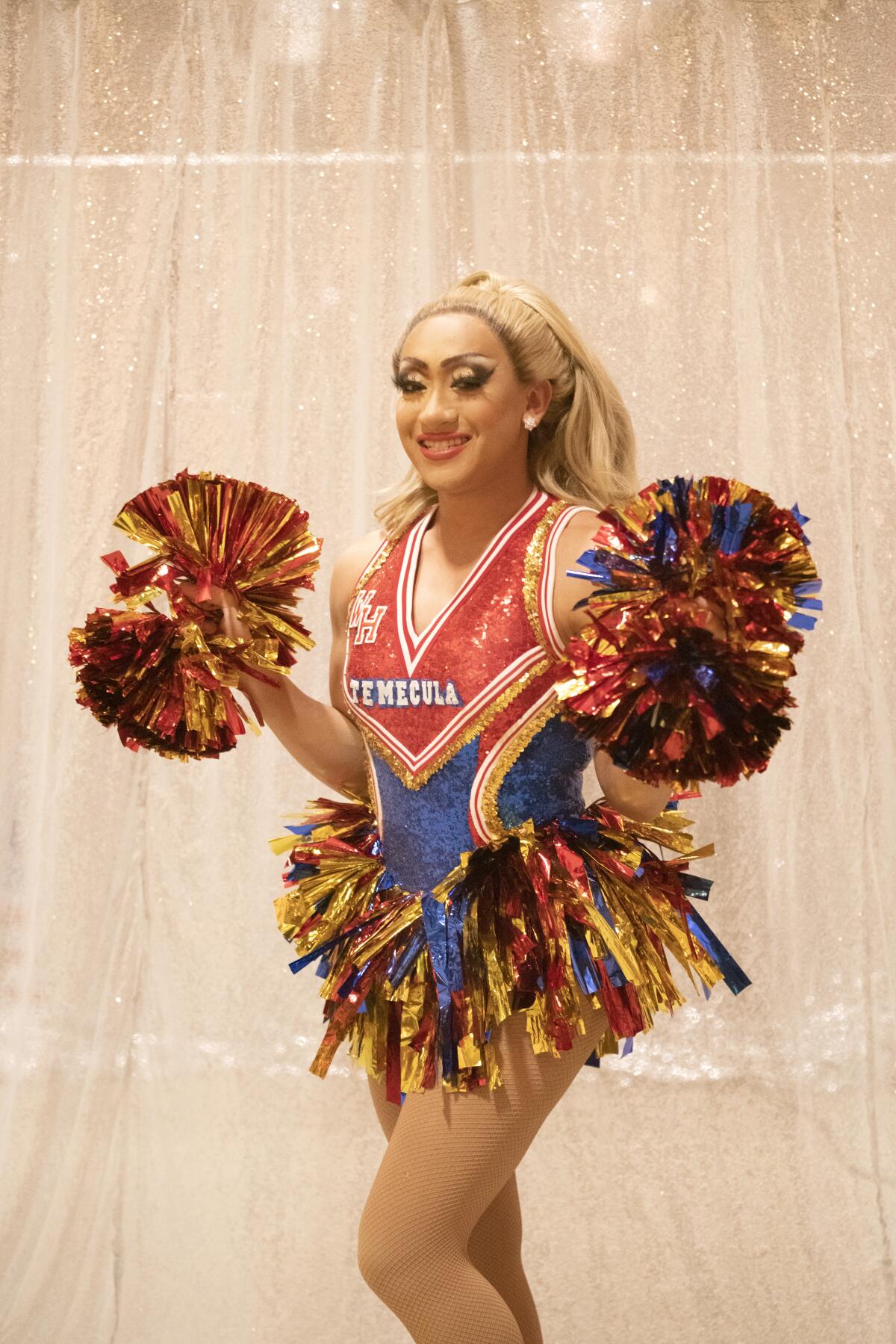
“It doesn’t matter who in your life shows up for you, show up for yourself. Show up for yourself and don’t hold back,” said Shangela. “I think people will really take away from [Andrei’s performance] that no matter what, you show up for yourself, and everything else is a bonus.”
Still, Manila appreciates the ways that his parents were a part of the episode, such as the phone call with his mother right before his performance in which she told him to “break a leg.” But nothing much has changed between him and his mother since filming the episode — aspects of his life that have to do with his queer identity are still not something they discuss.
“I don’t need to have my mother’s approval or acceptance,” said Manila. “It’s not something that I’m chasing anymore.”
Since filming the episode, Manila has moved out of his parents’ home to Orlando, Fla., where he is pursuing a career in the tourism and hospitality industry. He loves it.
“I can be myself down here and that’s all that matters,” said Manila. “I can surround myself with people who love me for who I am authentically, and I can reciprocate the same thing. It’s so freeing to not have to [feel like] I need to be someone who makes my parents proud, because I’m proud of who I am. And I get to share that with everyone that I surround myself with here.”
Despite being a working drag mother, Shangela tries to keep in touch with her drag kids. Manila recounted a recent phone call that was so resonant it brought him to tears.
“Shangela said when you have a beautiful flower and you put it in the wrong vase, you put it in the wrong environment, it’s not gonna grow,” said Manila. “When you put that flower in the right environment, give it the proper nutrients [and] give it what it needs, it blossoms into this beautiful, beautiful thing that everyone just loves. I get to grow and grow into who I am becoming and who I should be here.”
As of the time of the interview, Manila had not told his parents about his episode’s air date and did not expect his mother to see it.
But “I’m excited to share this with my chosen family. That’s what I’m looking forward to.”
More to Read
The complete guide to home viewing
Get Screen Gab for everything about the TV shows and streaming movies everyone’s talking about.
You may occasionally receive promotional content from the Los Angeles Times.

